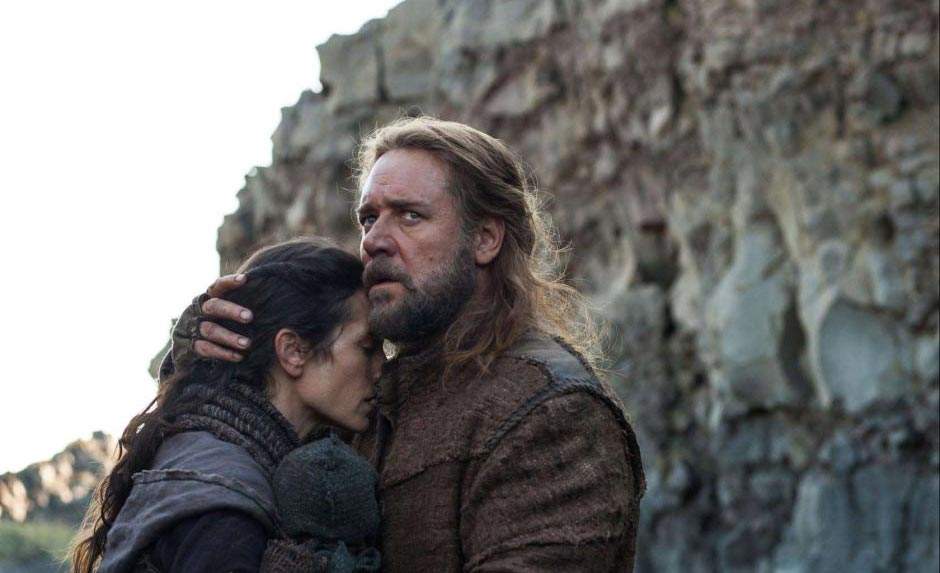Noah
No matter your faith (or absence thereof), this is an accomplished piece of direction and a powerful story.
Overview
Book-to-film adaptations can go either way. Francis Ford Coppola's The Godfather was so good that the novel's author, Mario Puzo, said he wished he'd written a better book. Conversely, The Cat in the Hat made you want to push sharp, salty popcorn into your eyeballs. It's usually when a film makes artistic changes from the source material that the ire of the book's fans is most extreme, and (arguably) nobody feels more passionately about the fundamentals of their favourite book than Christians.
Now, I'll admit it's been a while since I read the Bible, but — try as I might — I simply cannot remember the bit about Transformers. Maybe it was in the Book of Michael? Or was it Bay? Suffice it to say, it was more than a touch surprising to see them turn up in the opening scene of Darren Aronofsky's highly anticipated film Noah.
Rather than Autobots, however, these giant fallen angels (not to be confused with 'The Fallen' from, yes, Transformers) are called 'The Watchers'. Made ostensibly from stone and speaking with about as much clarity as an underwater Bane, they mark the first of several major departures from, or least reinterpretations of, one of the best-known stories of all time (the next being Noah's propensity to dispatch entire gangs of men with nothing but a tiny blade like he was some sort of biblical Jason Bourne).
Thankfully, for Aronofsky, these embellishments and emendations contribute to, rather than detract from, what is literally the epic tale of good and evil. With a budget of US$125 million, Noah has the resources of a blockbuster and a narrative from scripture yet avoids many of the trappings of both. Cerebral and unsanctimonious, it is, in Aronofsky's words, "the least biblical film ever made". God is only ever referred to as 'the Creator', and themes of environmentalism and survivor's guilt outweigh those of sin and the downfall of man.
As the film's eponymous lead, Russell Crowe is simply excellent. With his eyes alone he can sparkle with joy or threaten with burning menace, and in Noah that menace increasingly captures the character's singular, unwavering fidelity to his divine cause — culminating in a horrifying personal choice. Alongside him, Jennifer Connelly and Emma Watson play the loyal yet conflicted wife and adopted daughter, while Anthony Hopkins offers an amusing turn as Methuselah. Rounding out the ensemble is Ray Winstone as Tubal-cain, a descendant of Adam's son inserted into the plot to provide the film with a specific antagonist rather than relying simply on the generality of 'all sinful humanity'.
Cinematically, Noah is every bit the sumptuous spectacle the story deserves, with the highlight being an enthralling time-lapse chronicle of the 'first seven days' from the Book of Genesis (albeit with an amusing cross-fade just as evolution progresses to the point of simians, whereupon — cue dissolve — man pops separately into existence). No matter your faith (or even the absence of), this is an accomplished piece of direction and a powerful story of belief, devotion and — perhaps — obsession.







